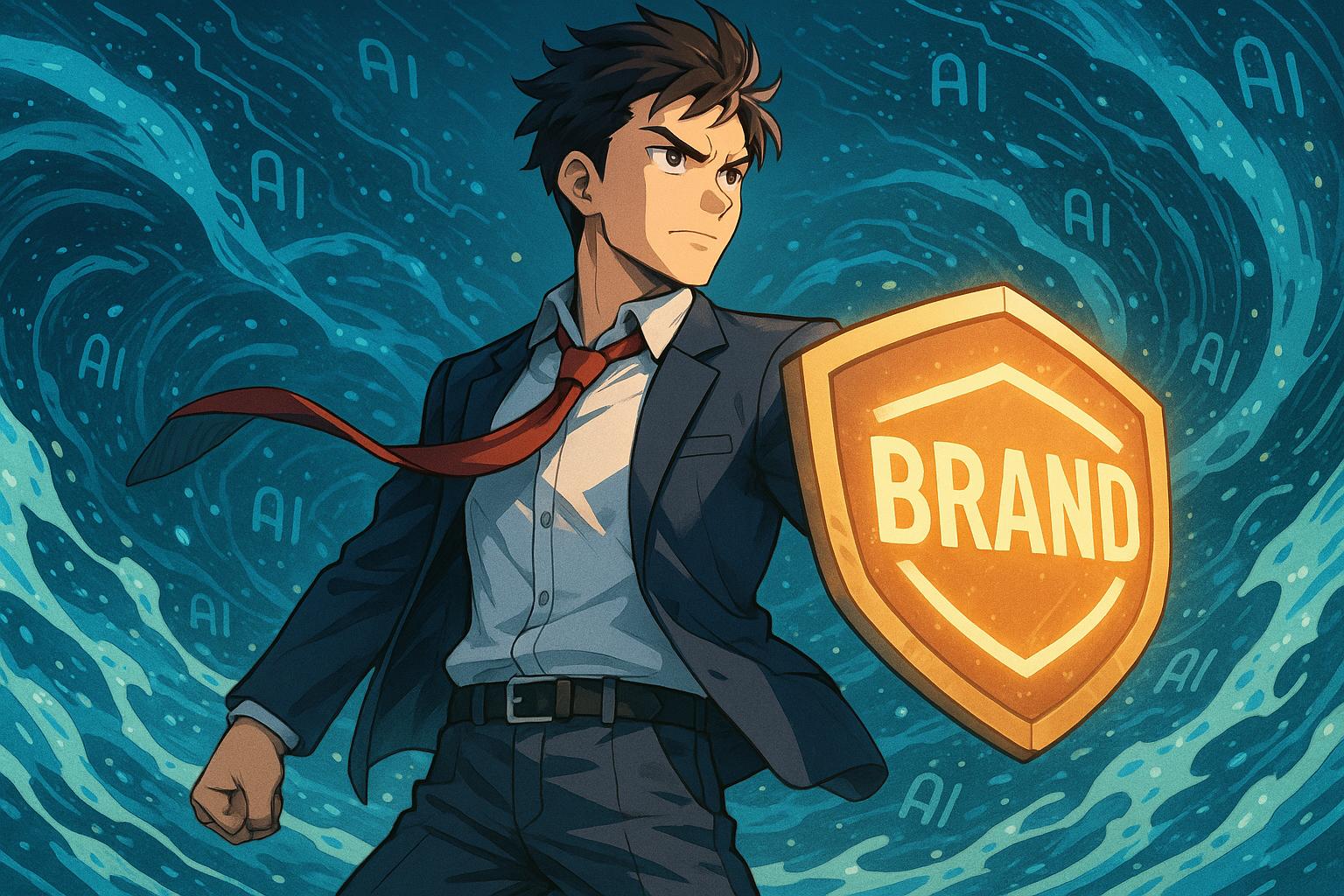In an era where artificial intelligence is reshaping the business landscape, the ability to build a solid brand emerges as not just advantageous but essential for survival. Insights from Gary Vaynerchuk, popularly known as GaryVee, reinforce this perspective, demonstrating how strategic brand development can shield businesses from the encroaching tides of AI-driven consumerism.
As the marketing environment rapidly evolves, the monetisation strategies of AI companies present both opportunities and challenges. Unlike traditional platforms such as Google, which primarily serve as gateways to businesses through advertising, emerging AI can potentially control entire customer journeys. GaryVee articulates this concern, stating, “I think we’re going into a perilous era of big tech where they’re going to be like, ‘Fuck the nickels that come along with advertising.’ We’re going to take the whole funnel.” This shift implies that brands that fail to establish a distinct identity risk becoming commoditised, lost in a sea of indistinct offerings.
To illustrate the critical importance of brand recognition, consider the distinction in consumer queries: “Send me a pizza” versus “Send me a Domino’s pizza.” The latter not only reflects consumer loyalty to a brand but also signifies a barrier against the AI's tendency to redirect traffic. In a marketplace increasingly governed by AI, cultivating brand specificity becomes crucial. Businesses must strategically position themselves to encourage customers to seek them out by name, thereby mitigating the risk of being subsumed under generic offerings.
While personal branding may be a desirable avenue for some, GaryVee emphasises that it is not a prerequisite for success. “You don’t even have to become the face or famous, but you need your business to do a much better job in being a brand,” he asserts. Companies like Coca-Cola and IBM exemplify this ethos; their recognition transcends the identities of their founders, illustrating that brands can thrive without heavily relying on personal celebrity. Instead, consistent content creation is the linchpin—businesses should aim to publish 20 to 30 pieces of content daily across various platforms. This rigorous approach builds touchpoints essential for forging recognition and fostering connections with audiences.
GaryVee also warns against the snare of “douchebag content,” which tends to focus on superficial display. Instead, authentic brand storytelling—rooted in expertise, values, and unique perspectives—is what truly resonates with consumers, elevating a brand's stature in the crowded marketplace. The emphasis lies on authenticity rather than ostentation; in his words, “if you’re that rich, you shouldn’t be showing photos in your private jet.”
In contemplating the broader implications of AI on business, resilience emerges as a non-negotiable quality for entrepreneurs. GaryVee describes resilience as “oxygen” for business owners—vital for longevity in a rapidly shifting environment. Adaptability becomes the core competency of successful entrepreneurs; they do not bemoan disruptions but instead pivot with agility, embracing change as an opportunity rather than a threat. This mindset is especially salient as businesses grapple with the vast implications of AI.
To navigate this evolving landscape, GaryVee outlines a clear path forward for brands, emphasising the need for a strategic approach to content creation, differentiation, and relationship-building. Encouraging businesses to develop direct connections with their audiences reduces reliance on platforms that they do not control, thereby enhancing autonomy. Furthermore, he advises that companies should charge what they are worth, allowing the market to dictate their value—a reflection of strong self-belief in their unique offerings.
The pressing necessity for businesses to cultivate brand identities cannot be overstated. As the marketing landscape continues to shift under the weight of technological advances, the brands that will endure are not necessarily the largest or most technologically advanced; rather, they are those that have nurtured robust brand recognition, compelling customers to request them explicitly. As we venture further into this AI-dominated era, it is unequivocally clear that brand building transcends mere marketing; it is the front line of defence against obsolescence.
In summary, while AI poses formidable challenges, it also creates an impetus for businesses to fortify their identity in the marketplace. The need for strategic brand development is urgent, and the time to act is now, while opportunities for meaningful differentiation still exist.
Reference Map:
- Paragraph 1 – [1], [3]
- Paragraph 2 – [1], [2]
- Paragraph 3 – [1], [5]
- Paragraph 4 – [1], [4]
- Paragraph 5 – [1], [6]
- Paragraph 6 – [1], [7]
- Paragraph 7 – [1], [1]
- Paragraph 8 – [1], [3]
Source: Noah Wire Services
